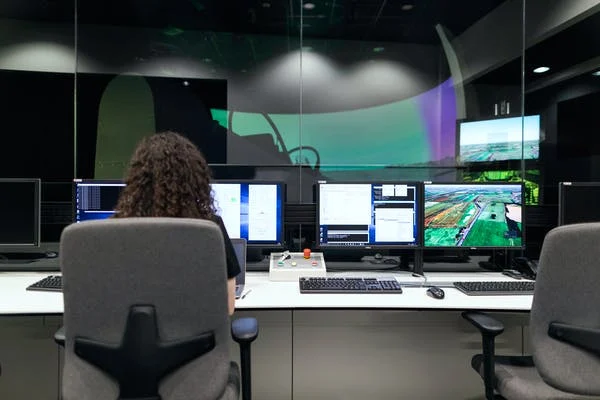
The way we use technology is constantly changing, and new technologies are emerging all the time that have the potential to radically change our world. Additionally, existing technologies are also continuing to evolve and become more sophisticated. It’s an exciting time to be alive, and it’s also a time when we need to be aware of the potential implications of these new technologies on our society and our world. Here are 8 modern technologies that are reshaping our tech world.
1. AR/VR
Augmented reality (AR) and virtual reality (VR) are two technologies that are rapidly gaining traction in both the consumer and enterprise markets. AR/VR headsets allow users to experience digital content in a completely immersive way, and they have a wide range of potential applications. For example, augmented reality development platforms are already being used by businesses to create training and educational content, and VR headsets like the Oculus Rift are being used for gaming and entertainment. Additionally, AR/VR technology is also being explored for use cases like medical training, military simulation, and architectural design. It’s an exciting time for AR/VR, and it’s likely that we’ll see even more innovative uses for this technology in the future.
2. AI and Machine Learning
Artificial intelligence (AI) and machine learning are two related technologies that are also gaining a lot of attention in the tech world. AI is about creating algorithms that enable computers to perform tasks that would traditionally require human intelligence, such as understanding natural language or recognizing patterns. Machine learning, on the other hand, is a type of AI that enables computers to learn from data and get better at performing tasks over time. Both AI and machine learning are being used in a variety of different ways, including for things like predictive analytics, content personalization, and automated customer support.
3. 5G
5G is the next generation of wireless technology, and it promises to revolutionize the way we use mobile devices. 5G will provide much faster speeds than existing 4G networks, as well as significantly lower latency (the time it takes for data to travel between two points). This will enable new use cases that require real-time data, such as augmented reality and virtual reality. Additionally, 5G will also have a much greater capacity than 4G, meaning that more devices can be connected to the network at the same time without experiencing any slowdown. 5G is currently being rolled out in select markets, and it’s expected to have a major impact on the mobile industry in the years to come.
4. The Internet of Things
The Internet of Things (IoT) is a network of physical devices that are connected to the internet and can communicate with each other. These devices can include things like thermostats, cars, appliances, and even clothing. The IoT has the potential to transform the way we live and work, and it’s already starting to have a major impact in a variety of different industries. For example, IoT-enabled devices are being used to improve the efficiency of manufacturing plants, and they’re also being used to track the movement of vehicles and people. The possibilities for the IoT are endless, and it’s poised to have a major impact on our world in the years to come.
5. Blockchain
Blockchain is a distributed database that enables secure, transparent, and tamper-proof transactions. It’s the technology that underlies cryptocurrencies like Bitcoin, and it’s also being explored for a wide range of other use cases. For example, blockchain is being used to create digital identities, streamline supply chain management, and create new types of financial instruments. Additionally, blockchain is also being explored as a way to increase transparency and trust in a variety of different industries. If you’re curious about blockchain, then you should definitely check out our Introduction to Blockchain Technology.
6. Quantum Computing
Quantum computing is a type of computing that uses quantum-mechanical phenomena, such as superposition and entanglement, to perform operations on data. Quantum computers are capable of solving certain problems much faster than traditional computers, and they have the potential to revolutionize a wide range of industries. For example, quantum computers could be used for things like drug discovery, large-scale simulation, and machine learning. Additionally, quantum computers could also be used to crack existing encryption algorithms, which would have major implications for security. Quantum computing is still in its early stages, but it’s already gaining a lot of attention from both academia and industry.
7. Edge Computing
Edge computing is a type of distributed computing that brings computation and data storage closer to the devices and sensors that generate and collect data. Edge computing is being used in a variety of different ways, including for things like content delivery, real-time analytics, and IoT applications. One of the benefits of edge computing is that it can help reduce latency since data doesn’t have to travel as far to be processed. Additionally, edge computing can also help conserve bandwidth and improve security, since data isn’t stored in centralized locations. It’s expected that edge computing will become increasingly important as the IoT grows and more devices are connected to the internet.
8.3D printing
3D printing is a type of additive manufacturing that creates three-dimensional objects by depositing material in layers. 3D printing is being used in a variety of different industries, including for things like prototyping, product development, and manufacturing. Additionally, 3D printing is also being used for things like medical implants and prosthetics, as well as for creating art and jewelry. 3D printing is still in its early stages, but it has the potential to revolutionize the way we manufacture goods. Additionally, 3D printing could also enable the mass customization of products, which would have major implications for both businesses and consumers.
These are just a few examples of modern technologies that are reshaping our world. As you can see, these technologies have the potential to transform a wide range of industries and revolutionize the way we live and work. So if you’re looking to stay ahead of the curve, then you need to be aware of these emerging technologies. It’s also worth noting that these technologies are often interrelated, and they often build on each other.







